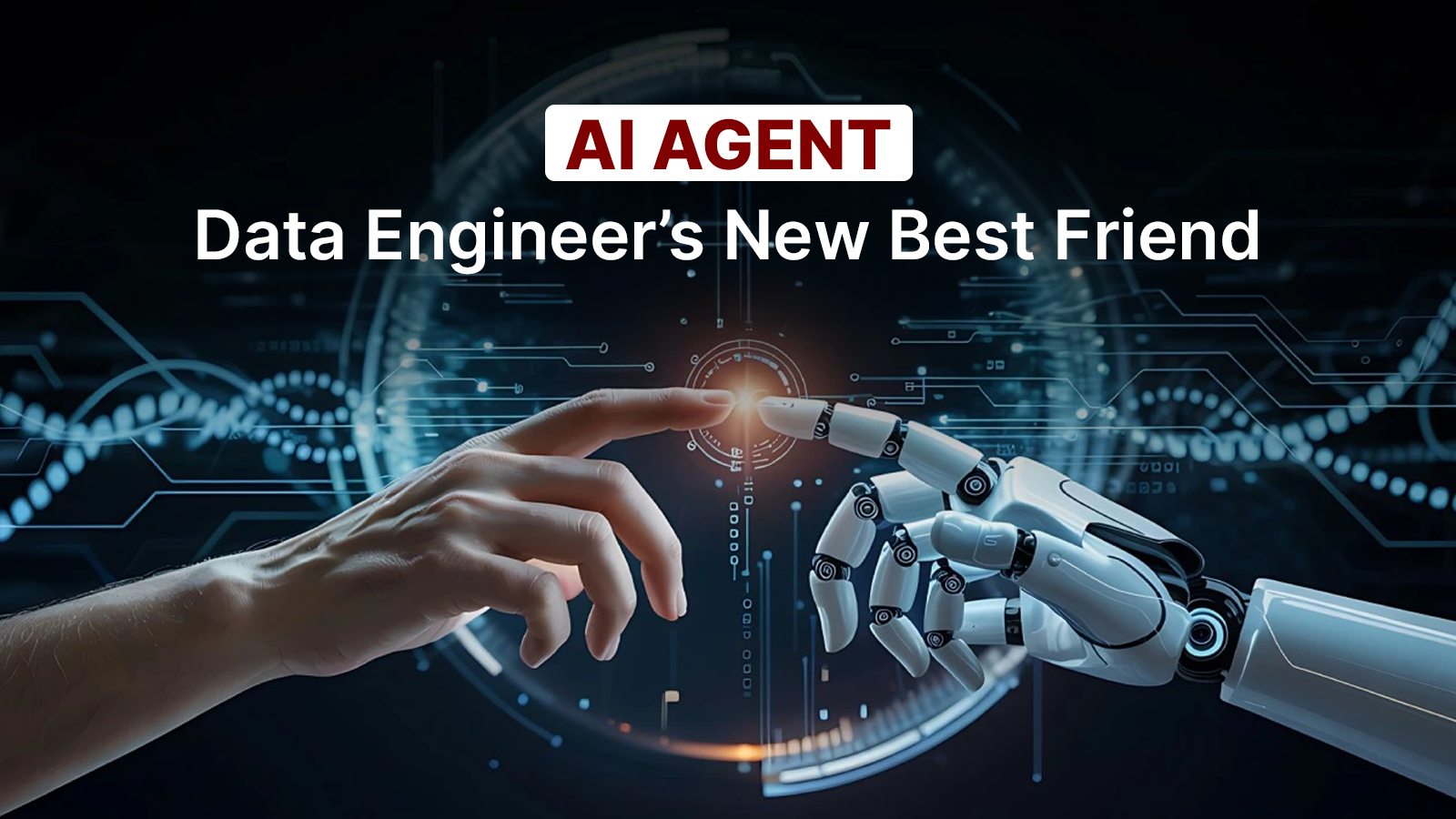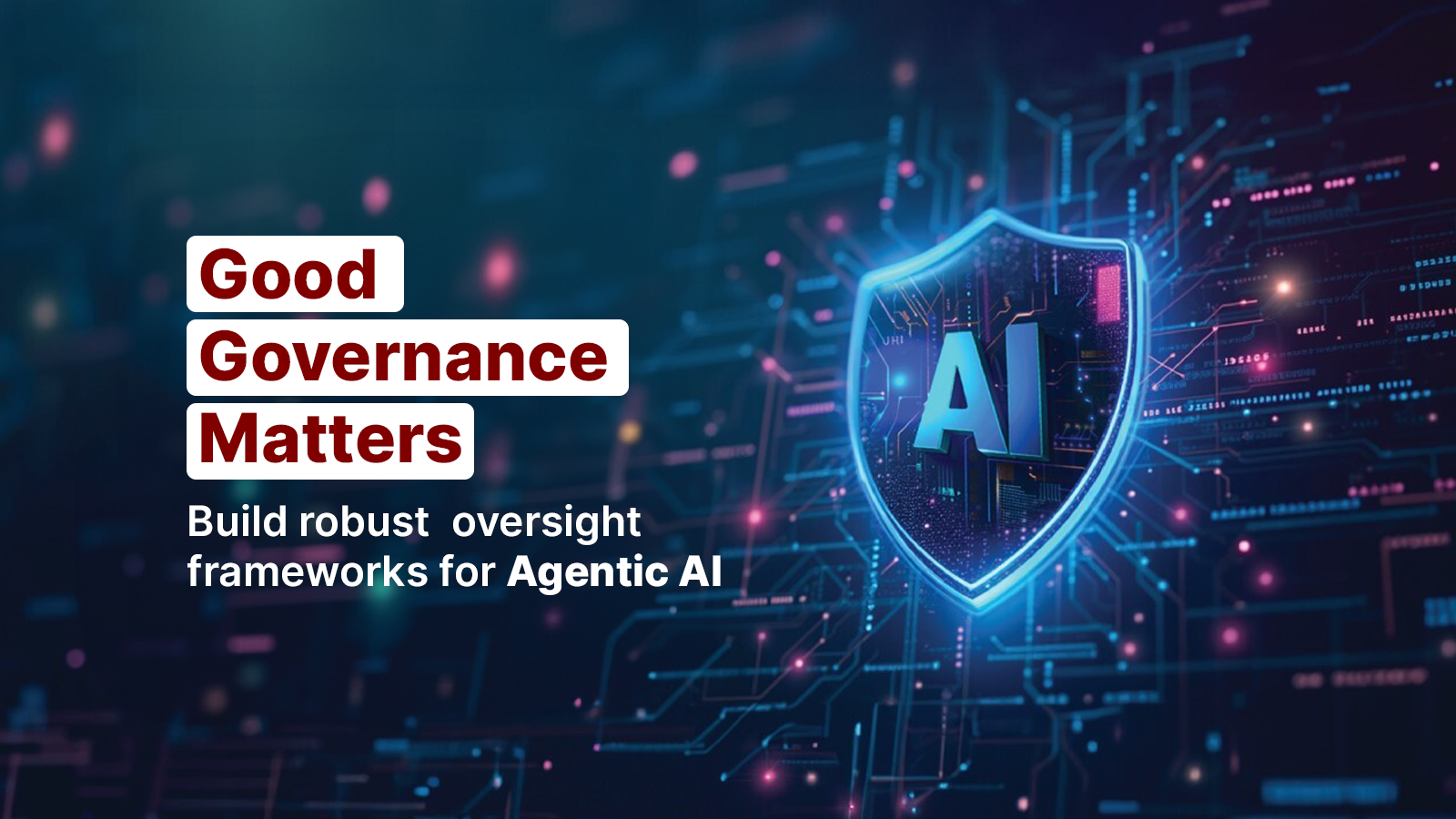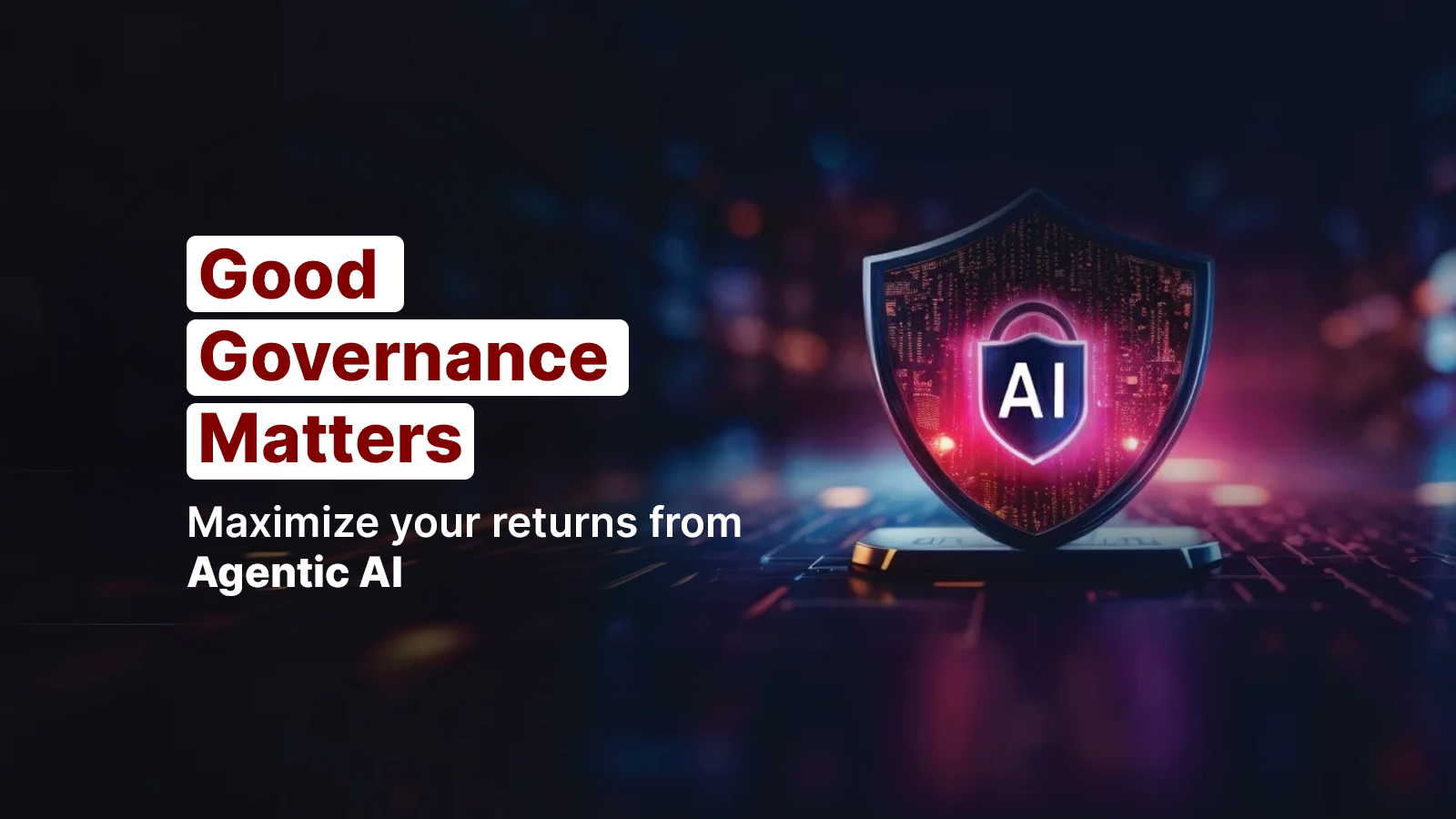Meet the Data Engineers’ New Best Friend: AI Agents
- Read Time: 3 Min

The mandate for today’s organizations is clear: become data-driven 𝗈̶𝗋̶ 𝖿̶𝖺̶𝗅̶𝗅̶ 𝖻̶𝖾̶𝗁̶𝗂̶𝗇̶𝖽̶.
So, the data engineers roll up their sleeves and get the job done. They build the backbone of data infrastructure, designing pipelines to deliver data to downstream users smoothly, and laying the groundwork for data science and analytics. While not always in the spotlight, data engineers know that the better data they offer, the better business outcomes.
Data accuracy is essential for intelligent systems to collaborate effectively and solve complex problems. But the real question remains—do organizations truly trust their data?
While 77% of organizations recognize data engineering as a critical function, only 26% rate their current approach as highly effective, according to the Wisdom of Crowds Data Engineering Market Study Report.
This stark gap highlights an urgent need for improvement. Without a strong data foundation, even the most sophisticated AI and analytics tools will fall short.
AI Agents: The New Allies of Data Engineers
As the demand for high-quality, real-time data grows, data engineers face an uphill battle with unsustainable manual processes. But with AI agents as their new allies, more data engineering workflows can be automated, monitored, optimized, and enhanced.
They can move beyond spending their time wrangling messy datasets, fixing broken pipelines, or manually tagging data assets to focus more on innovation and less on routine firefighting. These AI agents will work behind the scenes to lighten the load and reduce tedious manual efforts, assisting engineers in accelerating data quality assurance, expediting data cleaning, and optimizing processes.
Here’s how AI agents quietly reshape the foundation of data engineering, making it faster, smarter, and more efficient.
1. Productivity Booster
Implementing a new data integration project becomes significantly smoother and faster with AI agents in the mix. Traditionally, mapping source data to the target system is a time-consuming process. But with AI agents acting as intelligent recommenders, data engineers can leverage:
- Automated mapping suggestions based on historical transformations.
- Standardized data cleansing recommendations to ensure accuracy.
- Adaptive learning that improves suggestions over time.
Instead of spending weeks manually aligning data fields, they can review and approve AI-generated mappings in minutes.
2. Efficiency at Scale
Stop waiting for users to report issues; AI agents analyze historical logs, anticipate failures, and preemptively address them, ensuring uninterrupted data flow across systems. Key benefits for data engineers include:
- Proactively detect issues before they escalate.
- Reduced downtime in data workflows.
- Automated anomaly detection that prevents bad data from propagating.
By shifting from reactive fixes to proactive maintenance, teams can focus on long-term improvements rather than short-term patchwork.
3. Automated Data Accessibility & Metadata Management
In large enterprises, data is scattered across multiple systems, making it difficult to establish relationships between data sets. It makes the metadata documentation tedious, error-prone process. But now, AI agents can:
- Automatically detect and reconstruct entity relationships.
- Eliminate reliance on outdated documentation.
- Real-time metadata generation and validation.
- Smart tagging for effortless data discovery.
AI transforms scattered data into a unified, accessible source of truth. Automating tagging and learning usage patterns simplifies classification and data discovery, freeing data engineers to focus on strategy, not documentation.
4. Intelligent Data Similarity
Duplicated and redundant data is a persistent issue. AI agents tackle this by:
- Identifying similar datasets using machine learning clustering.
- Detecting duplicate records across vast enterprise systems.
- Recommending optimal data integration strategies.
With AI automating these processes, teams can optimize storage costs and improve data consistency.
5. AI-Driven Collaboration & Context Awareness
AI agents boost collaboration by analyzing teams’ data usage patterns to recommend relevant data sources while integrating feedback for continuous improvement. At the same time, they maintain compliance by aligning recommendations with governance standards. AI agents foster a more seamless, contextual, and efficient data engineering ecosystem where teams no longer work in silos but leverage AI-driven insights to make better decisions.
The Future of Smarter, Faster Data Engineering
As AI agents become increasingly ingrained in the fabric of data operations, the question isn’t if it will transform your workflows, but when it will reshape your entire approach to data engineering. Those who resist this shift will find themselves lagging in the race to harness the true power of data. Join hands with tech leaders who can charter an AI agentic path for your organization and empower your data engineers to orchestrate it. The future of data engineering isn’t about working hard; it’s about working smarter. AI agents are here to lead your organization to more innovative and faster data engineering.



